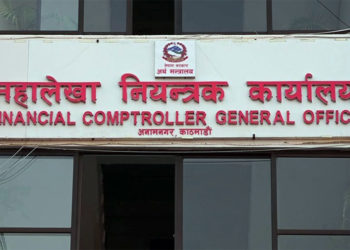KATHMANDU: Economic Digest offers a concise yet comprehensive overview of significant business happenings in Nepal, presented in easily digestible summaries.
As Nepal celebrates Dashain, its largest festival, the country shows a strong reliance on imports, particularly Indian meat and Chinese toothpicks, despite advancements in local agriculture.
Over the past five years, meat imports have surpassed 13 billion rupees, reflecting high demand, especially during the festival season.
Concurrently, the Nepal Stock Exchange is closed for the holiday, with trading set to resume on Tuesday.
In the tourism sector, Mustang has welcomed 15,698 foreign tourists in nine months, with significant numbers coming from SAARC countries and many accessing the region via the Thorang-La Pass.
Additionally, on Mahastami, Janakpur saw sales of laddu worth Rs 30 million, highlighting the festival’s culinary traditions and the various offerings made at local temples.
Nepal’s relies on Indian meat imports and Chinese toothpicks
As Nepal celebrates Dashain, its largest festival, there’s a marked focus on culinary traditions that include significant consumption of fish and meat.
Despite improvements in local agriculture and animal husbandry, the country remains heavily reliant on imports, particularly from India for meat and China for toothpicks.
Over the past five years, Nepal’s meat imports have exceeded 13 billion rupees, highlighting the ongoing demand.
The financial year 2019/20 recorded meat and fish imports of approximately 2.77 billion rupees, which rose to 3.34 billion in 2020/21.
The following year saw a slight decline to 3.13 billion rupees, while 2022/23 dropped significantly to around 1.08 billion rupees.
However, a rebound occurred in the fiscal year 2023/24, with imports reaching about 2.23 billion rupees, driven by the seasonal needs of the Dashain festival.
This trend underscores both the cultural significance of meat consumption during festivals in Nepal and the ongoing challenges in achieving self-sufficiency in food production despite agricultural advancements.
Nepal stock exchange closes for Dashain holiday
The Nepal Stock Exchange Limited (NEPSE) have remained closed from Thursday to Monday.
Regular trading will resume on Tuesday at 11:00 am.
During this period, no trading activities will take place at NEPSE, and investors are advised to plan their financial activities accordingly, considering this temporary closure.
Over 100,000 tourists visit Mustang in nine months
Mustang welcomed 15,698 foreign tourists in the first nine months of this year, according to the Area Conservation Office of the Annapurna Conservation Area Project (ACAP).
Of these, 90,081 visitors came from SAARC countries, while 15,617 were from other countries.
Additionally, 8,397 tourists accessed Mustang via the Thorang-La Pass, which stands at 5,400 meters.
The Office reported that 2,896 tourists entered the district within a month leading up to October 2.
Visitor numbers have increased significantly at popular sites such as the Muktinath temple, Kagbeni, the Korala border transit, Lomanthang, Sinja Jong Cave, Jomsom, Dhumba Lake, Thini, Marpha, and Lete. In total, Mustang attracted 121,352 foreign tourists in 2023.
Laddu worth Rs 30 million Sold in Janakpur
On Mahastami, the eighth day of the Bada Dashain festival, approximately Rs 30 million worth of laddu was sold in Janakpurdham, the capital of Madhes province.
This total amounts to around 65,000 kilos of the sweet dessert.
Dashrath Saha, a member of the Hotel and Tourism Entrepreneurs Association and owner of Om Bakery, noted the high sales figures, while Santosh Gupta, proprietor of Hansaraj Sweet Shop, highlighted the variety of laddu available.
These included ghiuwala, suddha ghiuwala, motichur, mahindana, gond, and mewa, with many people purchasing them to offer at local temples.
(Prepared by Srija Khanal)









Comment